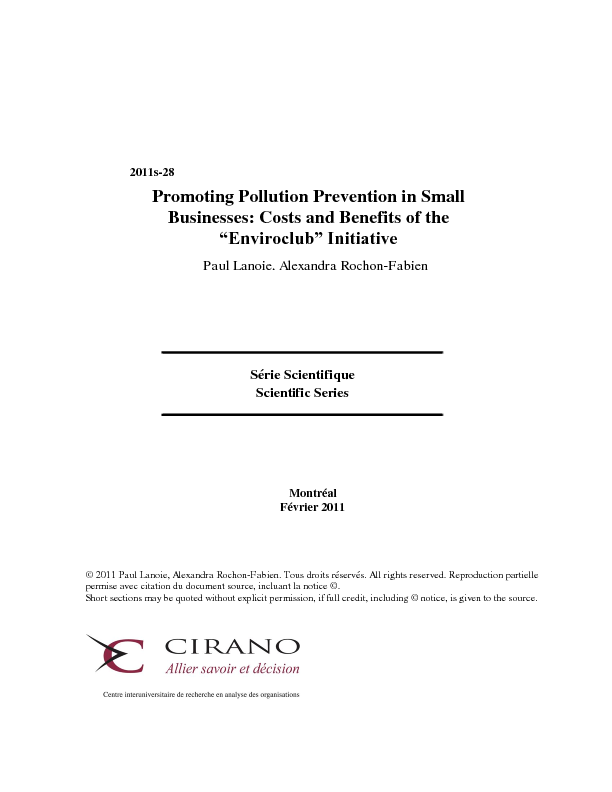Promoting Pollution Prevention in Small Businesses: Costs and Benefits of the “Enviroclub” Initiative
The Enviroclub initiative was developed by three federal government agenciesCanada Economic Development for Quebec Regions, Environment Canada and the National Research Council Canadaand launched in 2001 to assist small and medium-sized enterprises (SMEs) in improving their profitability and competitiveness through enhanced environmental performance. An Enviroclub consists of a group of 10 15 SMEs involved in training sessions on environmental management and carrying out at least one profitable in-plant pollution prevention project. The objective of this article is to provide a cost benefit analysis (CBA) of this original initiative in order to inform policy makers as to the social desirability of such programs. One of the main social benefits of this initiative is to reduce emissions of various pollutants, so that one of our largest challenges is to place a value on these environmental improvements. To do so, we use the environmental value transfer method to obtain values from previous relevant studies. We conduct our CBA at three different levels: we consider the costs and benefits first for the whole of society, then from the participating firms' point of view and, finally, from the governments' perspective. We conclude that, whichever perspective we choose, the Enviroclub initiative has been highly profitable.
[ - ]




